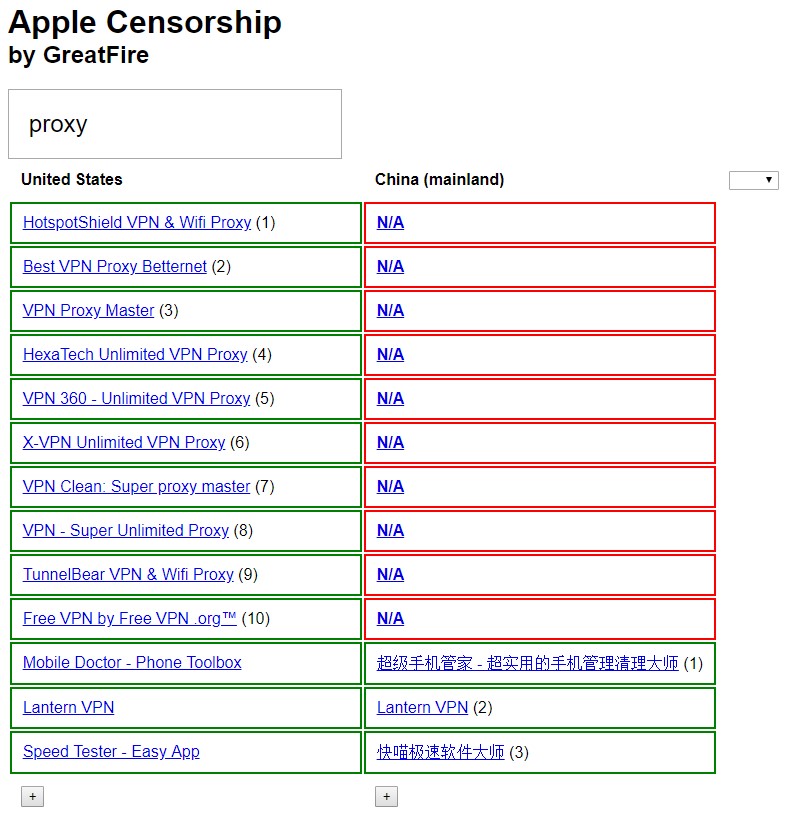
GreatFire’s Latest Website Sheds Light Onto Apple’s Censorship in China
- GreatFire launches a new website that monitors Apple censorship in China and 150 countries.
- The website results indicate that blockages have a purely political character, as expected.
- Apple claims they have no other choice, but continue to not specifically inform their customers.
GreatFire has announced their new website “AppleCensorship.com” which is dedicated to monitoring the censorship of iOS apps from various App Stores. While some level of restriction was evident to Apple product users in China, the company decided not to disclose a list of the blocked apps, following a low-transparency approach that left their customers in ignorance, or even confusion. GreatFire was determined to change that, unveiling the blocks and raising awareness of the extent of Apple’s censorship in China and another 150 countries from around the world.
GreatFire is a non-profit organization that advocates against internet censorship in China, so the two pillars of their engagement are to monitor the censorship imposed by the Great Firewall of China, and to help Chinese citizens circumvent the blockages. To keep themselves safe, the members of the organization stay anonymous, but their activities are still dynamic and effective. With the launch of their Apple censorship monitoring website, they are pulling the curtain for both the company and the Chinese government, uncovering all the apps that are currently blocked. Some notable examples that came out of our research include Google, Yahoo News, Flickr, The New York Times, TikTok, The NBC, BBC America, and a large number of VPN and proxy apps.
While many of those blocks were already known, the website plays a crucial role in pointing the finger to Apple, washing off any doubts about the level of the censorship agreements that the Cupertino giant has signed with the Chinese government. Tim Cook has never denied the fact, stating that although they would prefer not to remove any apps, they are compelled to follow the law wherever they do business. China is one of the largest pieces of their market pie anyway, so they prefer to at least offer something over not having a presence there at all. However, not being transparent on the imposed blocks is not giving them points in the customer trust-building game.
This lack of openness raises the concern across the full spectrum of their China-based operations. For Chinese users of iCloud, Apple has already complied with the legal requirement that wants them to store data locally and passed the management of this data to China Telecom-owned servers in Guizhou. While they claim that they are still the only party to hold the encryption keys to that data, there is no actual proof of that, nor does it appease those familiar with data security measures.
Finally, and with the Chinese market being such a lucrative but at the same time an easily elusive one, how far is Apple willing to go in order to maintain their presence there? Let’s hope that organizations like GreatFire will still be here to help us answer that question.
Let us know of your opinion in the comments section beneath, and what developments you foresee in this field for the near future. Also, don’t forget to like and subscribe to our socials, on Facebook and Twitter.








